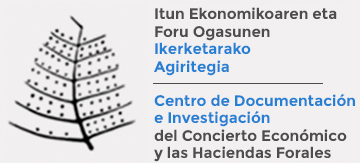Empirical work suggests that government spending generates large expansions of output and consumption. Most representative-agent models predict a moderate expansion of output, and a crowding-out of consumption. We reconcile these findings by taking into account the distribution of taxes. Using US data from 1913 to 2012, we provide evidence that government spending induces larger expansions in output and consumption when financed with more progressive taxes. We then develop a model with heterogeneous households and idiosyncratic risk, to show that a rise in government spending can be expansionary, both for output and consumption, only if financed with more progressive labor taxes. Key to our results is the model endogenous heterogeneity in households’ marginal propensities to consume and labor supply elasticities. In this respect, the distributional impact of fiscal policy is central to its aggregate effects.
Actualidad


